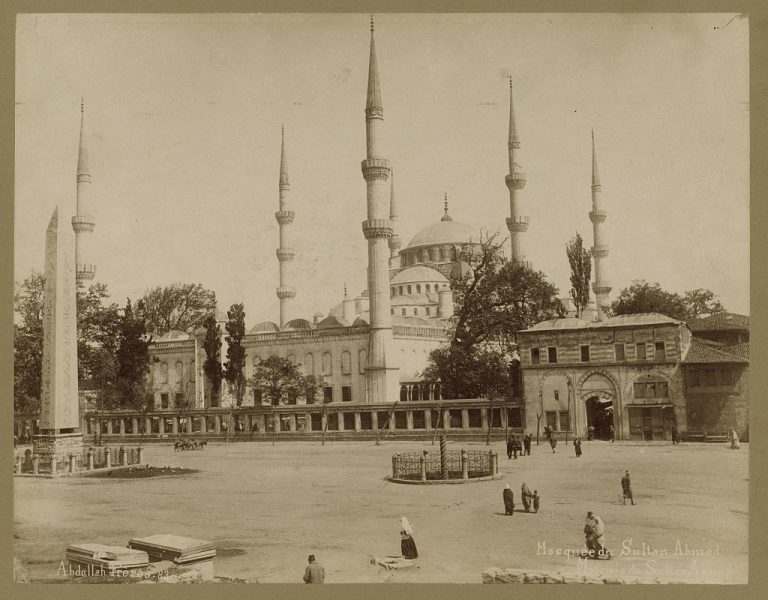The Caliph—not very different from the Pope in Rome for Catholics—was the leading and unifying temporal authority of the Islamic world. The institution moved across the expanding geopolitics of Islam, moving from the Arabian Peninsula to venerable cities such as Damascus, Syria, and Baghdad, and later to Egypt. Its influence and power waxed and waned during wars, invasions, and political turmoil, but it persisted. As the Ottoman Empire became an Islamic superpower spanning the continent, its sultan assumed the spiritual trappings of the caliph.
But the Caliphate did not survive the turbulent decline and disintegration of the Ottoman Empire by the end of World War I. By 1924, Turkey's new leaders – led by the ruthlessly modernizing Mustafa Kemal Pasha, or Ataturk, as he is widely remembered – had already dismantled the Ottoman Sultanate. In their formation of a new Turkish state from the ashes of the empire. The spiritual role of caliph was still occupied by Abdülmecid II, a meek Ottoman descendant who would soon be forced into exile with his immediate family.
Contemporary observers noted how quickly it all ended. Muhammad Barkatullah, an Indian Islamist sympathetic to the caliph's plight, wrote how Ataturk proposed “abolishing the institution” of the caliphate, expelling the caliph's family and confiscating their property. This was followed by a draft law passed by the National Assembly of the Republic by an overwhelming majority. Then a delegation of officials headed to Dolmabahce Palace in Istanbul, as Barkatullah recounts, “where they were ordered.” [caliph] To sit on the throne, then the decree of his removal was read. the [caliph] He was then ordered to abdicate and make arrangements for his immediate departure.
The Times of London wrote in its letter of his somber farewell on the train: “He spoke to no one except the chief of police, whose duty it was to accompany him to the border. When, at about midnight, the Simplon-Orient express arrived in a special reserved coach, the Caliph immediately entered the train and said a few kind words to the officials. The Caliph was greatly affected, and a number of those present burst into tears.
In our historical memory, the end of the Caliphate cannot be separated from the birth of the Turkish Republic. Sandor Listian, a Hungarian correspondent for a Budapest newspaper, wrote from Istanbul on March 3, 1924, that there was “a kind of excitement” in the city “that one feels when a much-desired wish is fulfilled or when a new event begins, the promising paths of one’s life.” He watched Ataturk and other Turkish officials push a bill to abolish the institution. “What was sacred and untouchable for nine hundred years has become obsolete with just a simple vote,” he said with great joy.
In foreign reports, a stark narrative has already been laid out: an Eastern anachronism swept away by the currents of history. The dissolution of the caliphate, as The Economist noted on March 8, 1924, “marks an era in the expansion of Western ideas into the non-Western world, because our Western principles of national sovereignty and self-government are the real forces sought by the Islamic State.” Abdul Majeed Efendi has fallen victim.”
Ataturk would go on to radically transform Turkey: the Arabic script was abandoned in favor of the Latin script; Mosques delivered sermons in Turkish, not Arabic; Muscular nationalism and strict secularism defined the state, much to the dismay of more pious Turks and ethnic minorities such as the Kurds.
The loss of the caliphate had a clear impact beyond the borders of modern Türkiye. Anger over the post-World War I dismemberment of the Ottoman Empire fueled politics in British-ruled India, where countless Indian Muslims rallied in what was called the Khilafat Movement. It attracted the support of other non-Muslim Indian opponents of British rule, including Mahatma Gandhi.
Further attempts to revive the institution of the caliphate broke out elsewhere in the Islamic world in the 1920s. But it did not last long, as Middle East researcher Martin Kramer pointed out. “After the 1930s, the caliphate remained a strange slogan for eccentrics, until recently, when caliphate fever gripped some of the most extreme Islamists, those obsessed with reenacting early Islam in painstaking detail,” he wrote, referring to the violent fantasies spread by Islam. ISIS and Islamic extremists.
The disappearance of the caliphate—that is, the established spiritual authority of Muslims, especially Sunnis, around the world—left a deep imprint on twentieth-century politics. “The whole phenomenon of radical Islam appears in this context,” Mustafa Akyol, a Turkish commentator, journalist, and author of “Islam Without Extremism: A Muslim Case for Freedom,” told me. “The origins of the problems of radical political Islam come from this vacuum.”
Akyol offered a specious interpretation of reality: What if the caliphate continued as an independent spiritual entity, somewhat along the lines of the Vatican in the newly created Italian republic of the nineteenth century? He recalled an incident in 1899, when the Ottoman Sultan Abdul Hamid II used his power as caliph to help quell a Philippine Muslim rebellion, which was a great act of gratitude to American diplomats whose government had just begun colonizing the archipelago. Could a post-World War I successor in Istanbul have played such a moderating role in the decades that followed?
The continuation of some sort of Ottoman caliph would have had more immediate implications for modern Turkey. Ataturk's legacy sowed the seeds of the political backlash we are now witnessing in the religious nationalism of Turkey's long-ruling President Recep Tayyip Erdogan. “Turkey could have avoided the excesses of the Kemalist ‘one-party’ era – especially the ‘revolutions’ that blatantly violated religious freedom – and developed a secularism more accommodating to religion.” Akyol argued. “Then it would have been possible to avoid the retaliatory religious return under Erdogan as well.”

